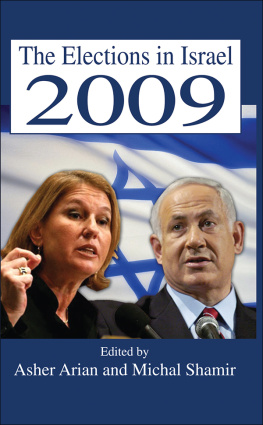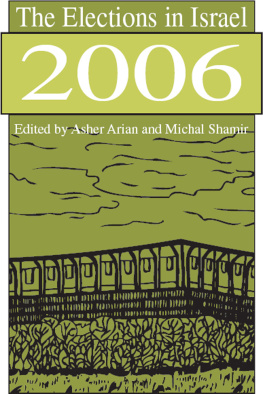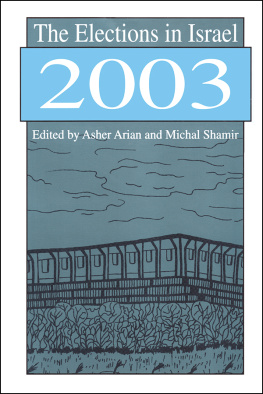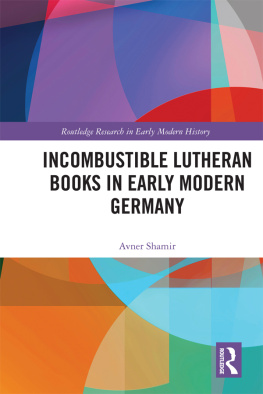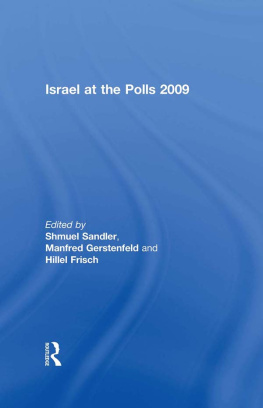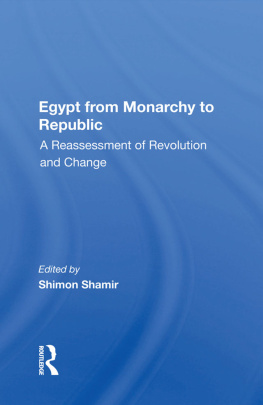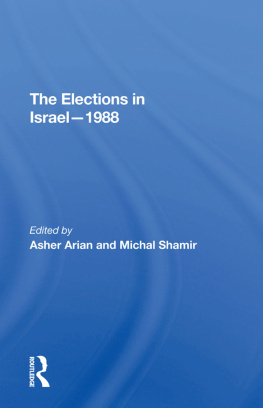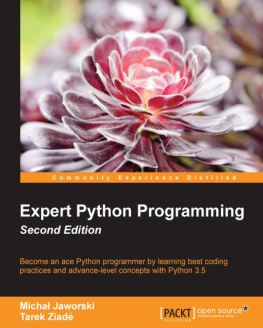The Elections in Israel
2009
The Israel Democracy Institute is an independent, non-partisan body on the seam of academia and politics. The Institute plans policy and devises reforms for government and public administration agencies, and for the institutions of democracy.
In its plans and endeavors, the Institute strives to support the institutions of Israels developing democracy and consolidate its values. The Institutes serious research work is followed up by practical recommendations, seeking to improve governance in Israel and foster a long-term vision for a stable democratic regime adapted to the structure, the values, and the norms of Israeli society. The Institute aspires to further public discourse in Israel on the issues placed on the national agenda, to promote structural, political, and economic reforms, to serve as a consulting body to decision-makers and the broad public, to provide information and present comparative research.
Researchers at the Israel Democracy Institute are leading academics directing projects in various areas of society and governance in Israel. The Institutes publications department produces, markets, and distributes the results of their work in several series: Books, policy papers, the Democracy Index, the Caesarea Forum, periodicals, and conferences proceedings.
The Israel Democracy Institute is the recipient of the 2009 Israel Prize for Lifetime Achievement Special Contribution to Society and State.
Translators: Karen Gold, Zvi Ofer, Trudy Greener
Language Editor (English) Cheryl Lynn Eaton
Language Editor (Hebrew) Galit Shamah
The Elections in Israel
2009
Edited by
Asher Arian and Michal Shamir
First published 2011 by Transaction Publishers
Published 2017 by Routledge
2 Park Square, Milton Park, Abingdon, Oxon OX14 4RN
711 Third Avenue, New York, NY 10017, USA
Routledge is an imprint of the Taylor & Francis Group, an informa business
Copyright 2011 by Taylor & Francis.
All rights reserved. No part of this book may be reprinted or reproduced or utilised in any form or by any electronic, mechanical, or other means, now known or hereafter invented, including photocopying and recording, or in any information storage or retrieval system, without permission in writing from the publishers.
Notice:
Product or corporate names may be trademarks or registered trademarks, and are used only for identification and explanation without intent to infringe.
Library of Congress Catalog Number: 2010030730
Library of Congress Cataloging-in-Publication Data
The elections in Israel 2009 / edited by Asher Arian and Michal Shamir.
p. cm.
Includes bibliographical references and index.
ISBN 978-1-4128-1478-2 (alk. paper) -- ISBN 978-1-4128-1467-6
1. Israel Knesset--Elections, 2009. 2. Elections--Israel. 3.
Israel--Politics and government--1993- I. Arian, Asher. II. Shamir, Michal, 1951-
JQ1830.A95E434 2010
324.95694054--dc22
2010030730
ISBN 13: 978-1-4128-1478-2 (hbk)
Asher Arian, 19382010.
Asher Arian did not get to see The Elections in Israel 2009 in print. He passed away on July 7, 2010, when the book was in the final editorial stages. This is the thirteenth volume in the Elections in Israel series, and the ninth volume which we have edited together. Asher initiated the Israel National Election Studies in 1969. This year marks the beginning of scientific research of elections and quantitative empirical political science in Israel. Asher carried out the first election study, which comprised of an election survey and an edited book covering the elections and Israeli politics from various perspectives. This winning combination continues since. Over the years, just about all leading scholars of Israeli politics have contributed to the series, as did international experts in electoral politics and outstanding graduate students. The Elections in Israel series has become an essential source for the study of Israeli democracy over time, on its peculiarities, strengths, and weaknesses.
We have been working on the 2009 election study since the announcement of early elections in October 2008. As always, and despite Ashers illness, we relished working on this project. Asher was not only a distinguished political scientist and astute observer of Israeli politics, but his wisdom and good sense, his wit and humor, his compassion and his inspiration made this enterprise both intellectually rewarding and fun. Asher used to say that there is a negative correlation between how interesting and important an election was and the quality of the book. You, the readers, judge for yourselves.
Asher was the pioneer and founder of the Israel National Election Studies. It is hard to think of them without him, but the study of elections in Israel will continue and strive. Be it one way to commemorate him and his work.
M. S.
July 2010
Professor Asher Arian (19382010)
Contents
Michal Shamir and Asher Arian
Olena Bagno
Ofir Abu, Fany Yuval, and Guy Ben-Porat
Asher Cohen
Nadim N. Rouhana, Mtanes Shihadeh, Areej Sabbagh-Khoury
Yael Yishai
Shlomit Barnea
Einat Gedalya, Hanna Herzog, Michal Shamir
Gideon Rahat
Yariv Tsfati, Tamir Sheafer, Gabriel Weimann
Dan Caspi, Eleanor Lev
Asher Arian, Andr Krouwel, Mark Pol, Raphael Ventura
Our sincere thanks to Dorit Shoval, Edna Granit, Miri Guri, and Helly Froimovich for their generous help in the production process, to Karen Gold, Zvi Ofer, and Trudy Greener for their translation, to Cheryl Lynn Eaton for her editorial work, to Fern Seckbach for constructing the index, to the scholars who agreed to review anonymously the articles submitted to this volume, and to Tel-Aviv Universitys Alvin Z. Rubinstein Chair of Political Science for its financial support.
A.A.
M.S.
Michal Shamir and Asher Arian
The elections to the Eighteenth Knesset were held February 10, 2009, almost three years after the elections to the Seventeenth Knesset and approximately twenty months before the original date set for them to be held (October 26, 2010). The elections are best understood in the context of the wars that were at each end of Olmerts government tenure, the corruption scandals involving the Prime Minister, and the internal politics of the Kadima party in proximity to the elections.
Ehud Olmerts term began with a pair of soldier kidnappings: that of Gilad Shalit in Gaza in June 2006 and that of Eldad Regev and Ehud Goldwasser by Hezbollah in Lebanon about two weeks later. These events would cast a heavy shadow over the rest of Olmerts government tenure. Following the second event, Israel initiated the Second Lebanon War, which was largely regarded as a failure and led to investigations in various bodies, including a governmental investigation, to political crises, and to instability in the government and the coalition. In the south, Olmert found himself facing Hamas, which had come to power in the Palestinian Authority in January 2006 and taken over Gaza in June 2007, as well as mortar and rocket attacks, and constant security tension. The IDF executed a number of limited raids that would culminate, towards the very end of Olmerts term, in a war in GazaOperation Cast Leadthat would end just three weeks before the election.




